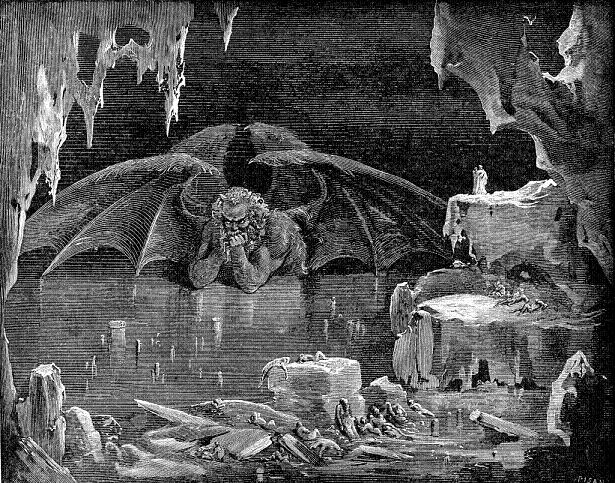Modern Times: Battle with the Beast
Columns, Modern Times - Posted on Tuesday, September 28, 2010 0:00 - 1 Comment
 By Corin Faife,
By Corin Faife,
Always on hand with a perceptive take on things, the behavioural economist Dan Ariely pointed out a month or two ago that, for a combination of reasons, it’s far easier for us to get upset about a singular catastrophic event than one which is the result of a cumulative process of degradation. In concrete terms, it means that whilst the degradation of the marine biosphere through pollution and overfishing continues worldwide, one-off disasters like the BP oil spill immediately create public outrage.
Part of his explanation that caught my eye was the reference to our susceptibility to react to “a single organisation that we can villainise” instead of a confluence of numerous actors; indeed, BP and their now ex-CEO Tony Hayward were just that: a convenient stand-in for all of the problems of irresponsible profit-chasing and operational negligence, a temporary Environmental Enemy No. 1.
It got me thinking about how, in a similar way, the global financial crisis brough into popular consciousness a more abstract figure who could be blamed for the many and varied ills of the modern economic system: The Banker. Though Mr. Joe Public, fuming at the thousands of pounds of tax he’d have to pay to bail out the economy, might not have understood the ins and outs of sub-prime loans and toxic assets, he sure did know he was mad at the Bankers. They were a satisfying target that normal people could relate to in just the same way that they couldn’t imagine landing a sweet right hook on the jaw of ‘lax financial regulation’.
As the great unwashed started marking out anyone working in financial services for a trip to the gallows should the revolution actually come, the bankers began tentatively (alas, correctly) pointing out that they had become to an extent a scapegoat group. Slowly the idea of The Banker as public enemy died out because was a bit too in-between: not quite accurate enough to properly reflect the situation, nor abstract enough to represent economic injustice as a whole.
Now, nobody likes to see an unjustly singled-out scapegoat, but there really is a lot to be said for anthropomorphising problems if it lets you focus your anger in order to really achieve something. It’s a venerable tradition stretching all the way back to the animism of primitive societies, where living at the whim of a world governed by confusing and little-understood natural forces was made more bearable through the attribution of intelligent agency to the processes of life.
Today we might better understand the forces of nature, but the powers that run our lives are no less nebulous and complex, and deserve to be given an appropriate face. The Man of the 60s and 70s was a perfect and now sadly defunct metonym for all the controlling powers of conformist society: it was the Man who didn’t want you to grow your hair long or experiment with drugs, the Man who would exploit your labour, cut your benefits, or send you to fight in Vietnam. You could actually imagine his sour, piggy-eyed face frowning in disapproval, which made it all the more satisfying when you were turning on, dropping out and generally sticking it to him. (Whenever you see images of peasant farmers, tired of centuries of exploitation of the Global South by the North, burning American flags at a street protest, the symbolism employed is just the same. Hint: they’re not usually huge fans of the French or British either).
The radical and popular movements of the 21st Century could do with a new figure to stick it to, a more theatrical and evocative enemy than ‘capitalism’ or ‘the system’, with a more selective application than ‘America’. The entity who’s destroying the rainforest, putting CCTV in the streets and sowing distrust among neighbours; dropping bombs in Iraq and selling arms to Israel, filling your mind with adverts and feeding junk food to your kids. A hypertrophied version of the Man on steroids.
I might call him The Beast.
Corin Faife is a writer and activist. His ‘Modern Times’ column appears every Tuesday.
1 Comment
Ceasefire Magazine – This week in Ceasefire


[…] Modern Times: Battle with the beast […]